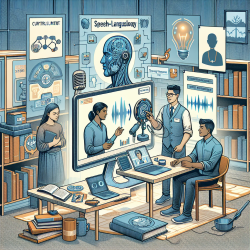The field of intelligence research has undergone significant transformations over the years. Recent studies, particularly the bibliometric analysis featured in "The Evolution of Intelligence: Analysis of the Journal of Intelligence and Intelligence," provide valuable insights into current trends and future directions. This blog post aims to help practitioners enhance their skills by implementing key findings from this research or encouraging further exploration.
Current Trends in Intelligence Research
The bibliometric analysis covers two leading journals in the field: Intelligence and the Journal of Intelligence (JOI). From 2013 to 2022, these journals have highlighted several core themes:
- Cognitive Ability: A central focus across both journals, cognitive ability remains a pivotal area of study.
- Fluid Intelligence and Working Memory: These are consistently explored themes that contribute to understanding cognitive processes.
- Psychometrics and Statistics: The application of statistical methods continues to be crucial in measuring and understanding intelligence.
- The Flynn Effect: The phenomenon of rising IQ scores over time is a topic of interest in traditional intelligence research.
- Creativity and Emotional Intelligence: JOI emphasizes these areas, reflecting a growing interest in non-traditional aspects of intelligence.
Thematic Trends and Implications
The study identifies thematic trends through keyword analysis and thematic mapping. For practitioners, understanding these trends can guide professional development and inform practice. Here are some implications:
- Diversifying Research Focus: Practitioners should consider exploring themes like creativity and emotional intelligence, which are gaining prominence.
- Cognitive Assessments: Utilizing advanced psychometric tools can improve assessment accuracy and effectiveness.
- Cultural Considerations: As geographic IQ variability declines as a theme, there's an opportunity to focus on cultural intelligence and its impact on learning environments.
The Role of Practitioners in Advancing Research
Practitioners play a crucial role in bridging research and application. By staying informed about current trends, they can contribute to the evolution of intelligence research. Here are some steps to consider:
- Engage with Research Communities: Participate in conferences and webinars to stay updated on new findings.
- Collaborate with Researchers: Work alongside researchers to apply theoretical insights in practical settings.
- Pursue Further Studies: Consider conducting your own research or pursuing advanced studies to deepen your understanding.
The evolution of intelligence research offers exciting opportunities for practitioners to enhance their skills and contribute to the field. By leveraging insights from recent studies, they can better understand cognitive processes and apply this knowledge effectively in educational settings.
The Evolution of Intelligence: Analysis of the Journal of Intelligence and Intelligence










